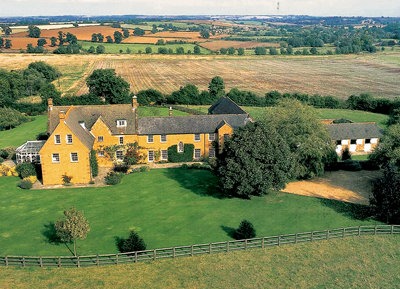Farmland prices flatten
The optimism fuelling the market for English farmland over the past few years is starting to falter, new figures show


Values for English farmland - an asset that has weathered the recession remarkably well - have started to flatten out as concerns grow over government austerity measures, believe researchers at Knight Frank.
Prices rose just 0.8% in the third quarter of 2010. This is after a surge in values in recent months. The figure takes growth over the past 12 months to 17%, according to the latest results of the Knight Frank Farmland Index
The average price of farmland is now £5,816 an acre. Prices have flattened despite a leap in the value of cereal prices, but values are not forecast to fall significantly
Andrew Shirley at Knight Frank explains: 'Average English farmland values increased only fractionally in the third quarter of 2010, bringing to an end the surge in values that saw prices rise by 24% between the beginning of 2009 and the middle of this year. Even though agricultural commodity values are currently performing extremely strongly, this slowdown is hardly surprising. No sector of the economy is likely to escape the impact of the coalition government's spending review later this month and the UK's economic recovery is still uncertain.
'The fact that farmland prices still remain at record highs shows how resilient the market is and we believe that the flattening seen in the past three months is a slowdown rather than the beginning of any significant decline. Prices are likely to start picking up again more quickly after spring 2011 when farmers actually begin to see the impact of higher cereal prices on the bottom line.
'In terms of buyer activity, farmers remain the most active purchasers, accounting for 52% of acquisitions, followed by ‘lifestyle' buyers (27%) and then investors (11%).'
Exquisite houses, the beauty of Nature, and how to get the most from your life, straight to your inbox.

